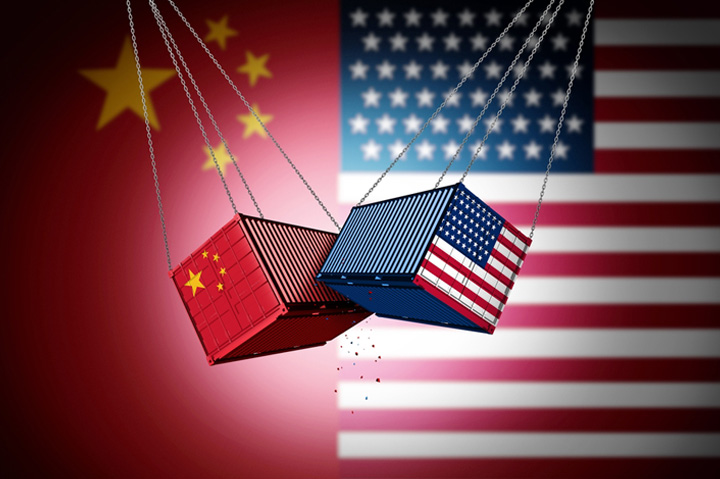News CANADIAN NEWS April 23, 2025
Trump & Bessent Signal Potential Reduction in China Tariffs
The White House is reportedly considering reducing the 145% rate in additional tariffs it has placed on China-made imports in 2025 – a potential boon to industries that rely on importing from there, like promo.
Key Takeaways
• Tariff Reduction Consideration: President Trump and Treasury Secretary Bessent have indicated potential reduction of 145% tariffs on China-made imports.
• China’s Stance: Beijing indicated it’s open to talks with the Trump administration.
• Impacts: While much remains uncertain, a significant drop in tariffs on Chinese imports could prompt a surge in importing demand from that nation from promo and other importing industries.
President Donald Trump and U.S. Treasury Secretary Scott Bessent this week both indicated that the 145% rate in additional tariffs that the White House has imposed on China-made imports so far in 2025 could be reduced.
While much remains uncertain, the comments are a departure from hard-line stances the White House has taken regarding trade with China in early 2025 – and potentially a boon to industries that rely heavily on importing from that country, like the promotional products space.

Markets reacted favorably. The Dow Jones Industrial Average was up 1,088 points in morning trading Wednesday, April 2023, while the Nasdaq Composite surged 3.9%. By Friday, April 25, stock futures were trading lower.
On Tuesday, April 22, Trump called the tariffs on China “very high” and added, “It won’t be that high. It will come down substantially. But it won’t be zero. It used to be zero.”
Those comments came after Bessent told attendees of a private investor summit hosted by JPMorgan Chase that “there will be a de-escalation” of trade tensions with China in the “very near future.” Bessent added that “no one thinks the current status quo is sustainable.”
White House Press Secretary Karoline Leavitt said at a press briefing that Trump is “setting the stage for a deal with China … and the ball is moving in the right direction.”
Citing an unnamed White House source, The Wall Street Journal shared in an exclusive report on Wednesday morning that the administration was considering reducing China tariff rates 50% to 65%.
The Journal wrote: “The administration is also considering a tiered approach similar to the one proposed by the House committee on China late last year: 35% levies for items the U.S. deems not a threat to national security, and at least 100% for items deemed as strategic to America’s interest.” The bill proposing the approach calls for phasing the duties in over years.
Following the WSJ report, a White House official told CNBC that China would have to lower trade barriers in exchange for a lower tariff rate from the U.S. In response to U.S. tariffs, China has increased levies on U.S. imports to 125% and undertaken other countermeasures, like limiting export of rare earth metals.
“China’s attitude towards the tariff war launched by the U.S. is quite clear: We don’t want to fight, but we are not afraid of it,” Foreign Ministry spokesperson Guo Jiakun said on Wednesday. “If we fight, we will fight to the end; if we talk, the door is wide open.” China has maintained there are no talks underway with the United States at the moment, but Trump has asserted discussions are taking place. Meanwhile, some reports suggested Beijing was considering exempting certain U.S. products from its counter tariffs.
Most items the U.S. promotional products industry sells are imported. China is the nation from which promo sources most heavily: Nearly 9 in 10 (88%) promo suppliers who import products do so from China, making that nation by far the merch industry’s top sourcing destination, according to the Counselor State of the Industry report.
The current 145% rate on China-manufactured products have compelled many promo importers and others to slam the brakes on bringing in products from China for the time being – a phenomenon that has certain merch market executives worried that inventory shortages and supply chain disruption akin to the COVID-19 era could possibly lie ahead, if the pause becomes prolonged.
If the administration drops China tariffs rates, and they’re low enough, that could prompt a scramble among promo importers and other sectors to get products imported before another potential escalation. Such activity could spike freight rates and cause importing delays – a threat to inventory levels and possible driver of further escalated pricing in promo.
Tariffs and talk of tariffs/trade war created instability and uncertainty during the first quarter of 2025 that contributed significantly to promo distributors’ sales collectively dropping 3.6% compared to the same quarter the prior year, the Distributor Quarterly Sales Survey from ASI Research shows. Suppliers’ sales were down 4.8%.
Tariffs are essentially taxes on imports. U.S. companies importing products into the country are responsible for paying the levies, not foreign companies and foreign governments. This increases costs for U.S.-based importers. Importers often pass these costs along, driving up prices for consumers and other businesses that ultimately buy the importers’ products.
